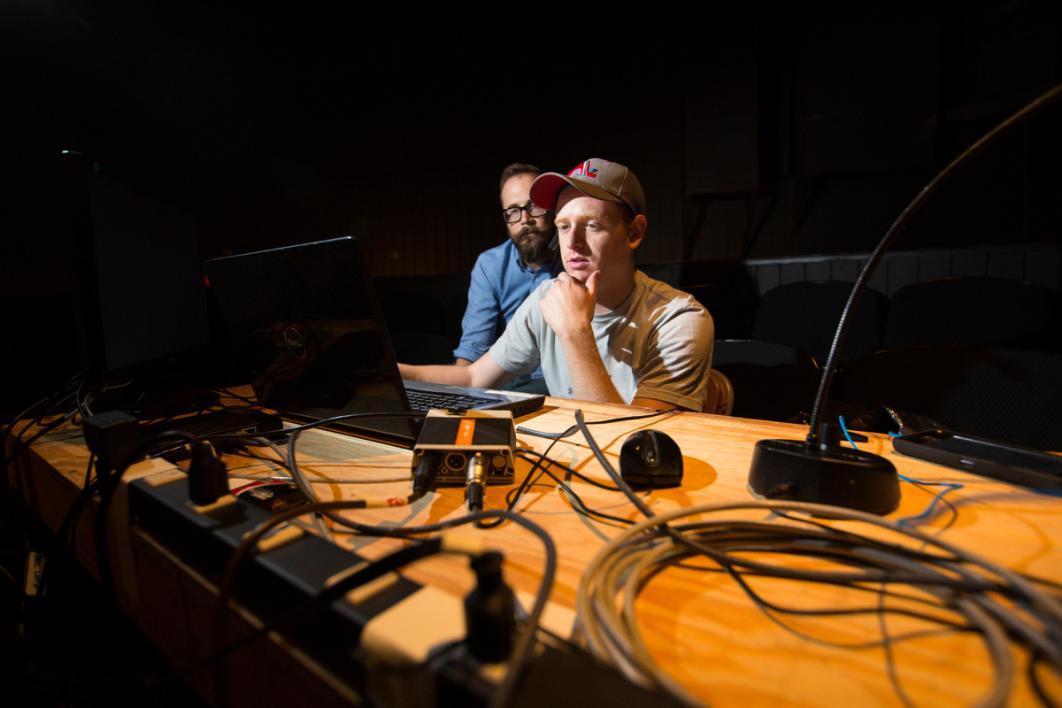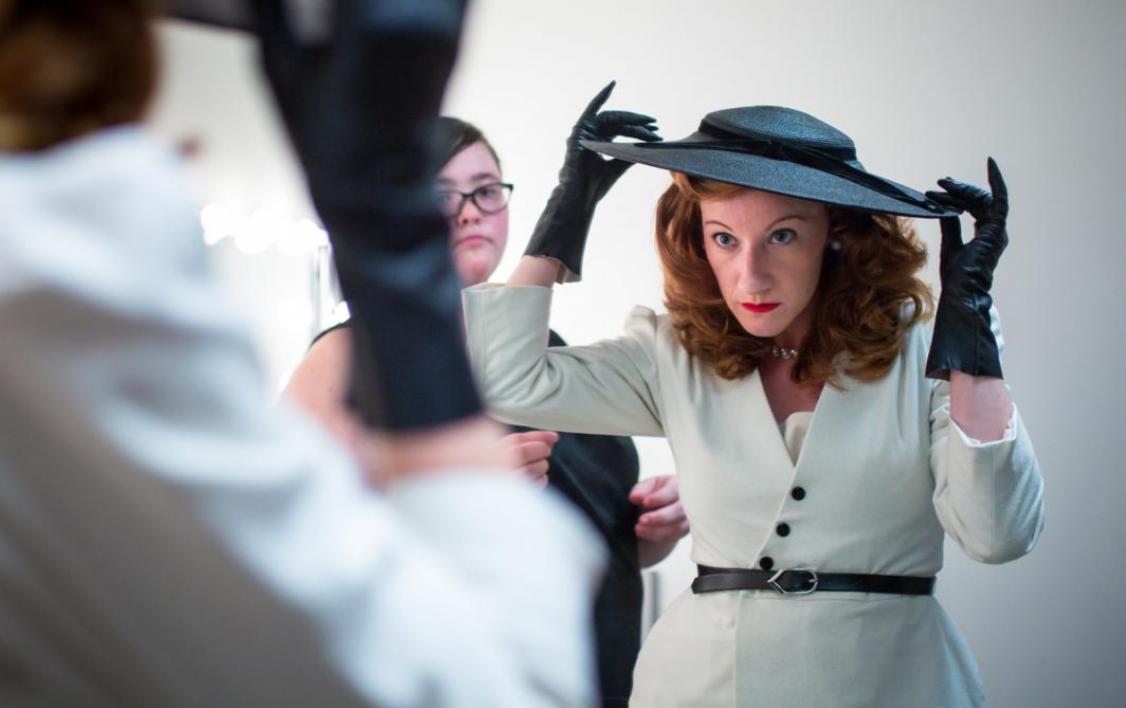Wyatt Kent is quite aware of the difficulties in producing a classic play and the expectations that follow, especially one that also made it big in Hollywood.
But this master's in directing student in ASU’s School of Film, Dance and Theatre doesn’t shy away from a challenge. Even when that classic work is the iconic “A Streetcar Named Desire.”
The play, which opens Friday as part of the school’s 2015-2016 MainStage season, tells the story of Blanche DuBois, a southern belle who moves in with her sister and brother-in-law in a small New Orleans apartment to escape financial ruin. Conflict ensues as the three characters navigate their individual dramas and the physically restricting space of the apartment.
Written by Tennessee Williams in the 1940s, the play is considered an essential piece of the American literary canon.
“One of the things I find exciting is taking plays that people feel like they know and engaging with them from the ground up,” said Kent, who is directing “Streetcar.”

Directing a classic
Director Wyatt Kent checks with a stage hand during a rehearsal of Tennessee Williams’ “A Streetcar Named Desire” at ASU's Lyceum Theatre, on Wednesday, Oct. 14.
Charlie Leight/ASU Now
For this production, that meant finding new ways to incorporate contemporary theater practices into the show, particularly media design, while still honoring Williams’ timeless story.
Michael Bateman, a master's in interdisciplinary digital media and performance student and the show’s media designer, took an understated approach to the design, which will primarily involve projecting imagery onto set pieces, while taking cues from Williams’ original words.
“When you hear about ‘A Streetcar Named Desire’ you might think about standard American drama in a box set sort of space, but Tennessee Williams really writes poetry in his script,” said Bateman. “He talks about these lurid shadowy reflections on the wall that engulf Blanche in their horror, and that’s all in the script. These very vivid images written by Williams typically don’t get addressed in most productions, where her psyche is fracturing and reality around her is breaking. We are using media to show that reality fracturing around her, especially later in the script when she is really breaking down.”
For Vickie Hall, the master's in performance student who plays Blanche, the media design is an exciting element, but the story itself still has a very real relevance today.
“Theater is a living, breathing thing,” said Hall. “What’s amazing about our craft is that you can reach back and find a play from the ’40s and there are still themes and situations in the play that are just as relevant to us now.”
Hall mentions universal concerns, like identity and societal pressures, as keys to this work, but she says that the text retains importance on a more literal level as well.
“Blanche is a bit of a racist so there is that element of the culture that is in her; that’s how she grew up, that’s how she knows how to interact with the world. And I think that’s still absolutely going on today, and it’s something that needs to be addressed,” Hall said. “Theater can address those things through story form. Sometimes I think that’s how we learn best.”
Lance Gharavi, assistant director of theater and creative director of the MainStage theater season, says that the impulse to do this work really came from the student body. The cast, director and designers for the show are all current students at ASU.
“I was hearing from a lot of students a desire (if you will) to wrestle with a big, important, monumental work, a classic that has endured the tests of time,” Gharavi said. “There are few U.S. playwrights, very few works of U.S. theatre that carry more gravity than Williams or ‘Streetcar.’ I was excited by the prospect of opening a season with this work. And, of course, we’re closing our season with the world premiere of a new play. The old and the new bookend our season. I’m thrilled to give audiences a glimpse into the brutal, sexy and unforgettable world that Williams created. There’s a reason it’s a classic. “
“ ‘Streetcar’ is terrifying, it’s a monster,” Kent said. “It’s a long play full of complicated questions and no simple answers. I feel really lucky to get to engage with those things at ASU.”
“A Streetcar Named Desire” will be on view at the Lyceum Theatre, 901 S. Forest Mall on ASU’s Tempe campus:
7:30 p.m., Oct. 16-17
2 p.m., Oct. 18
7:30 p.m., Oct. 22-24
2 p.m., Oct. 25
Tickets cost $16, $12 for ASU faculty, staff and alumni, $12 for senior citizens or $8 for students. Tickets can be purchased online or by calling 480.965.6447.
More Arts, humanities and education

ASU instructor’s debut novel becomes a bestseller on Amazon
Desiree Prieto Groft’s newly released novel "Girl, Unemployed" focuses on women and work — a subject close to Groft’s heart.“I have always been obsessed with women and jobs,” said Groft, a writing…

‘It all started at ASU’: Football player, theater alum makes the big screen
For filmmaker Ben Fritz, everything is about connection, relationships and overcoming expectations. “It’s about seeing people beyond how they see themselves,” he said. “When you create a space…

Lost languages mean lost cultures
By Alyssa Arns and Kristen LaRue-SandlerWhat if your language disappeared?Over the span of human existence, civilizations have come and gone. For many, the absence of written records means we know…





